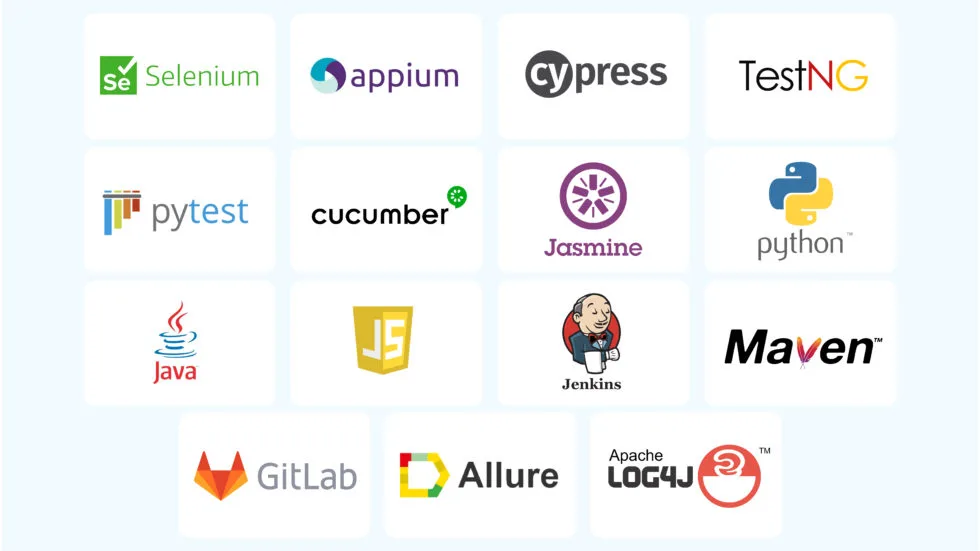A strong QA (quality assurance) team working in close collaboration with the business will elevate the quality of your product, increase customer satisfaction, and protect your brand reputation, among many other benefits. However, building an in-house QA practice can be expensive, time-consuming, and challenging — things that can hold you back or distract you while competing in an ultra-fast-paced market.
There is a way to get your QA practice from 0 to 100: Managed QA. In a Managed QA engagement, you outsource your QA practice to an experienced team, enabling you to get up and running as soon as you onboard a QA partner.
Why Managed QA?
In a managed setup, you delegate your entire QA process to a team. In alignment with the organization’s objectives, the Managed QA team is responsible for strategizing, implementing, and improving your approach to QA. With a successful partnership, you will soon realize the following benefits.
Faster onboarding
You won’t have to do the recruiting, training, and managing of a team yourself. Your Managed QA team comes with a dedicated team of engineers ready to work on your project on Day 1.
Access to specialized skills and knowledge
Managed QA team members will be equipped with testing competencies, knowledge of tools and standards, and best practices. They can help you improve your test coverage to include functional, user, and performance testing, and more. More than technical capabilities, they will already be adept at working with software development teams and product stakeholders. These are expertise and experience that are developed over years of practice. Let your Managed QA team handle these so you can focus on your core business.

Various testing technologies you will have access to when you hire an experienced Managed QA team.
Faster time-to-market
With your Managed QA team’s capabilities at your disposal, you can run your QA practice more efficiently, achieving your goals faster and more effectively. When needed, you can deploy multiple teams and accelerate your overall testing implementation to meet the demands of your market faster.
Scalability
You can launch your practice with a lean team, then scale up or down depending on the demands of your projects. Your Managed QA team will take care of hiring, onboarding, training, and debriefing as needed, allowing you to be more agile and responsive to changing business needs.
Cost savings and opportunity costs
A Managed QA partner provides a dedicated team of engineers that can work on multiple projects simultaneously, allowing you to benefit from economies of scale. You also save on costs associated with hiring, training, managing, and retaining an in-house team.
Moreover, with experts in place, you can identify and resolve issues early. Thus, you minimize the risk of defects, which may cost more in terms of reparations. You also avoid product release delays and poor user experiences, which may cost you growth opportunities.
Making outsourced QA work
Getting into a Managed QA partnership brings valuable benefits. To make sure you realize these benefits, here are some guidelines:
Set expectations and standards
Engaging a Managed QA team does not mean showing them to their project room and coming back when the project is done. Cascade your company’s objectives and goals at the beginning of the engagement to make sure that all team members — yours and your partner’s — are working towards the same goal.
Have clear communication channels
Establish communication protocols. Determine one communication channel where updates will be consistent, open, and frequent. Assign a single point of contact for the Managed QA partner and for your team. Set a regular cadence to get the QA team, the software development team, and all the stakeholders on the same page.
Track progress and performance
Define project goals, timelines, and quality metrics. Schedule regular status reports on progress, detection rates, test coverage, and testing cycle times. Based on these data, you can work with the Managed QA team to drive improvements in the product and your processes.
Nurture a partnership
More than a service provider, your Managed QA team is your partner. Build a strong and collaborative relationship with your Managed QA partner. While their team members belong to different companies, work with them as if they were your own team. Provide an environment where both your team and your partner’s team will feel valued, supported, and empowered to deliver high-quality results.</span
Choose your Managed QA partner wisely
Establishing a QA practice from scratch can be daunting — yet necessary. But you don’t have to start from zero. When you work with a partner like Stratpoint, you work with a team trusted by top brands in the Philippines and Silicon Valley.
Stratpoint’s Managed QA team incorporates quality into every aspect of the software development lifecycle and the business. They have high-value testing competencies and technologies to help you run your QA practice more efficiently and adapt more easily. Lastly, you leverage the capabilities of seasoned QA engineers to help you implement best practices, optimize your QA processes, and deliver the best version of your product that will bring the most value to your business and your customers.
Learn more about how Stratpoint can help you make the most out of a QA practice: https://stratpoint.com/qaservices/






